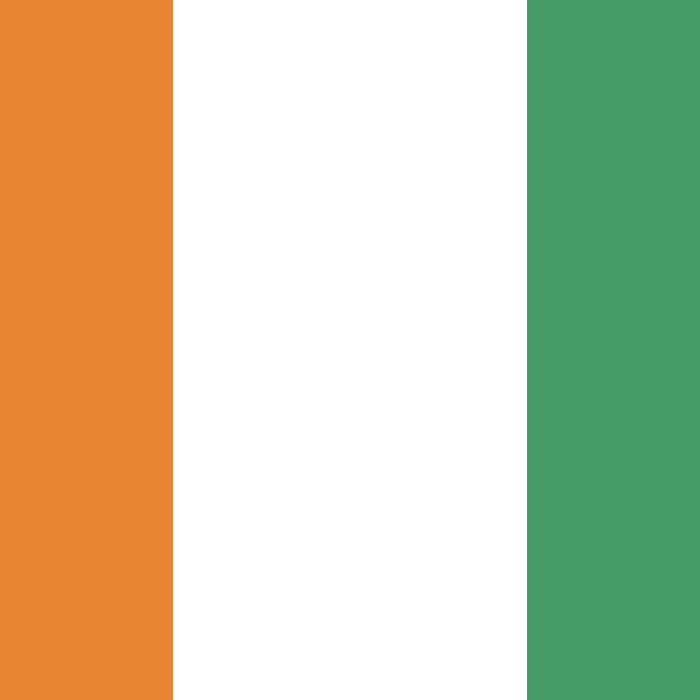Côte d’Ivoire’s Fintech Revolution Unlocks Inclusive Growth Opportunities


Quidah is an online platform that connects investors with curated opportunities and expert insights on Africa’s emerging markets, while offering businesses promotional services, partnership facilitation, and market intelligence to attract capital and grow their operations.
Industries
Abidjan, Côte d’Ivoire — A new era of digital finance is reshaping Côte d’Ivoire’s economy as tech-driven solutions redefine access to financial services for individuals, small businesses, and informal workers. With internet usage on the rise and mobile phone penetration now surpassing 130 percent—many Ivorians owning more than one SIM or device—the country is fast becoming a regional hub for fintech innovation in West Africa.
At the heart of this transformation is a wave of agile startups, buoyed by government initiatives and increasing investor interest. These enterprises are delivering financial tools once reserved for the formal banking sector, and extending them to underserved populations through mobile-first, user-friendly platforms. The combination of mobile money adoption, the spread of affordable smartphones, and pro-innovation policies has created fertile ground for scalable digital financial solutions.

Startups Powering Financial Inclusion
A group of standout startups is leading Côte d’Ivoire’s digital finance evolution, creating tools that respond directly to the needs of a largely unbanked or underbanked population.
Wave, a fast-growing mobile money platform backed by international investors such as Sequoia Heritage and Founders Fund, provides low-fee services accessible even to users without traditional bank accounts. By allowing Ivorians to send and receive money using only their mobile phones, Wave is transforming how people handle everyday transactions—from paying school fees to shopping at markets.
Julaya, another key player in the ecosystem, offers digital payment solutions tailored for small businesses and informal sector operators. The platform enables users to send and receive money, manage payrolls, and create digital transaction histories. This is particularly relevant in a country where the informal economy represents over 40 percent of GDP, and formal banking is often inaccessible or mistrusted.
CinetPay is fueling Côte d’Ivoire’s e-commerce surge by providing secure online payment gateways. Merchants, from street vendors to SMEs, use CinetPay to accept payments across platforms, currencies, and borders, making digital commerce more seamless and trustworthy. With online retail growing across the region, secure payment processing is a cornerstone for sustained digital trade.
Together, these startups are enhancing financial access and accelerating economic empowerment. As one Abidjan-based fintech founder noted, “Financial inclusion isn’t just about banking access; it’s about creating economic opportunities for everyone through technology.”
Barriers and Opportunities for Scalable Growth
Despite its momentum, Côte d’Ivoire’s fintech sector faces several persistent challenges that threaten to stall progress if left unaddressed. Yet, these challenges also represent areas ripe for innovation and investment.
User trust and financial literacy are still limited, especially among older citizens and rural communities. Many Ivorians remain skeptical of digital systems due to a lack of exposure, minimal consumer protection, and occasional mobile fraud cases. Building trust through user education and localized outreach remains critical.
Regulatory frameworks, while increasingly supportive, are still catching up with the pace of innovation. Licensing, cross-border remittance rules, and consumer data protection laws require further clarity to support long-term sector growth. According to the Central Bank of West African States (BCEAO), harmonizing regional digital finance policies could unleash even greater cross-border fintech cooperation.
Infrastructure in rural areas presents another hurdle. While mobile network coverage is extensive, inconsistent service quality and limited access to 4G or stable electricity hamper seamless digital service delivery. Infrastructure investment—both public and private—will be key to closing the digital divide.
For investors and ecosystem builders, these gaps offer strategic entry points. Targeted capital, technical expertise, and public-private partnerships can accelerate the development of solutions that not only scale but also empower communities.
A Regional Leader in Digital Finance
Côte d’Ivoire’s progress in building an open, tech-friendly business environment is increasingly positioning it as a regional leader in digital financial services. Government backing for tech entrepreneurship has been visible through initiatives like the Ivorian Ministry of Digital Economy’s startup registry, digital tax incentives, and collaborations with development partners such as the World Bank and IFC.
A young, digitally native population is further fueling innovation. Nearly 60 percent of Ivorians are under 25 years old, creating a large and agile market for mobile-first platforms. Many are already leapfrogging traditional finance by embracing digital wallets, mobile credit, and e-commerce from their first financial experiences.
As these startups grow and forge new partnerships, Côte d’Ivoire is setting a regional example for how digital finance can bridge economic divides and integrate more citizens into the formal economy. The fintech sector is no longer just about mobile banking—it now includes investment platforms, micro-insurance, SME credit scoring, and digital bookkeeping.
For investors, entrepreneurs, and policymakers alike, Côte d’Ivoire offers a compelling blueprint for how technology, when guided by inclusion and innovation, can redefine access to capital and economic agency. From the bustling markets of Abobo to the burgeoning tech hubs of Treichville, a digital revolution is taking hold—and its reach is only beginning.


